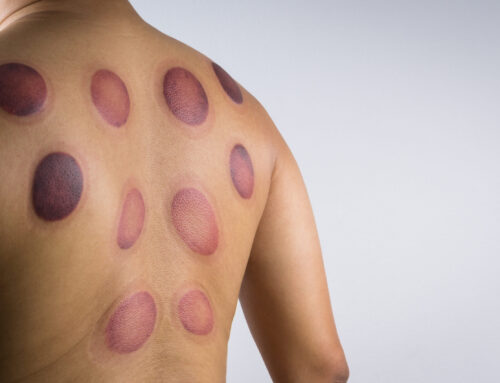For many people, acupuncture for stress relief is not their first thought. As the pandemic chugs through its third winter, Covid no longer feels as dire for most: Those who want

The word relax is gently blue in the background of beautiful lights. New Year’s content.
vaccines and boosters have gotten them, and most people have caught the virus and recovered. Though colds, flu and other bugs are running rampant, we can leave our homes, access childcare, socialize, and gather with our families. However, even though the major stressors have passed, many of our bodies still feel stuck in panic mode.
Now is the time to work on dismantling the effects of what the last few difficult years have wrought, and shift our focus onto recovery and creating routines that foster stress reduction.
Here at Glow, we have options for you. Psychotherapy is available in person and via telehealth. Our acupuncturists can treat burnout, anxiety, insomnia, fatigue, panic attacks and more. Many of our patients initially seek out treatment for pain or fertility, then continue coming for the stress-reducing side effects of acupuncture, including better sleep, less irritability, fewer headaches and less gut issues. Acupuncture done once a week for 6-8 weeks can help even the most intractable cases.
The vagus nerve and the autonomic nervous system
Your nervous system has two distinct parts that function to maintain homeostasis: the sympathetic nervous system (“fight or flight”) and the parasympathetic nervous system (“rest and digest”). When you feel constantly anxious, can’t sleep, have poor digestion and other stress-related symptoms, your body is stuck in fight-or-flight.
To break this cycle, it is important to activate the vagus nerve. “Vagus” translates from Latin as “wandering” since the long nerve passes through nearly every organ system, controlling cardiovascular, respiratory, and gastrointestinal activity. The ultimate “chill-out nerve,” it stimulates your body to relax and release calming neurotransmitters like serotonin and acetylcholine. Numerous studies have shown that acupuncture can regulate the vagus nerve. It can also be moderated through deep, relaxed breathing and meditation. It has been shown that auricular acupuncture plays a role in vagal regulation.
According to this study, “Acupuncture has clinical efficacy on various autonomic nerve-related disorders, such as cardiovascular diseases, epilepsy, anxiety and nervousness, circadian rhythm disorders, polycystic ovary syndrome (PCOS), and sub-fertility.”
If you’re experiencing any of the following, your body may be stuck in sympathetic nervous system dominance:
- Insomnia
- Anxious feelings
- Tight neck and shoulders
- Feelings of panic
- Cold hands and feet
- Cold sweats
- Dry mouth, eyes and nose
- Elevated temperature
- Easily stressed
- Excessive emotions
- Elevated resting pulse
- Sensitively to light and sound
- Hard to calm down, startles easily
- Headaches
- Gut issues
Acupuncture can address all these issues. Stimulation of the vagus nerve directly impacts sleep by increasing the body’s production of melatonin according this study.The science behind panic attacks tells us that stimulation of the vagus nerve relieves symptoms of panic. The evidence shows what East Asian medicine already knows: Adding acupuncture to your self-care routine will reduce your stress-related symptoms.





Leave A Comment
You must be logged in to post a comment.